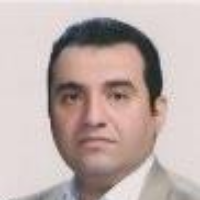TWO METAHEURISTIC APPROACHES FOR DISCRETE TIME-COST-QUALITY TRADEOFF PROBLEM WITH GENERALIZED PRECEDENCE CONSTRAINTS
A project should be delivered according to the contract at a speci ed time and date. On this basis, execution and completion times of activities are predicted and predetermined. But in some cases, it is necessary to complete the project even earlier than the speci ed date. It is obvious that in reaching shorter accomplished time, the time of some activities should be reduced. This reduction of time, known as crash activity time, is accompanied by the increasing use of resources and the spending of more costs. On the other hand, performing the activities in a longer duration decreases the costs of activity, but it may lead to the increase of the project duration, which may incur certain penalties. In relation to these advances and penalties, making a comprehensive and correct decision is a rigid challenge for managers. In practice, one of the most fundamental measures for project success is its quality, which can be in uenced by time acceleration with additional costs. The goal of time-cost-quality trade-o is to select subset of activities for accelerating and to select the proper execution modes to minimize the total project time and cost, and maximize its overall quality. In this research, a new model is proposed for time-costquality trade-o problem in which, unlike the previous researches that have only one precedence relation, other kinds of precedence relations have been taken into consideration. However, these constraints complicate the problem, but carry us to the real world. On the other hand, attempt is made to optimize the time, cost, and quality objectives simultaneousl. Due to the complexity of the discrete time-cost-quality trade-o problem, using heuristic and metaheuristic algorithms for solving large-sized problems is undeniable. In this research, the NSGA-II and FastPGA algorithms are used for this purpose and their performances have been evaluated and compared using several criteria that focus on intensity and diversity of solutions.
-
Spatial Modeling and Monitoring Electricity Consumption using Generalized Likelihood Ratio Control Chart
M. Khazaie Poul, H. Farughi *, Y. Samimi
International Journal of Engineering, Jul 2025 -
Joint production and maintenance optimization for a single-machine deteriorating system in a finite planning horizon
Parviz Rahimi Kakehjoob, *, Hasan Rasay
Journal of Industrial Engineering and Management Studies, Summer-Autumn 2024


